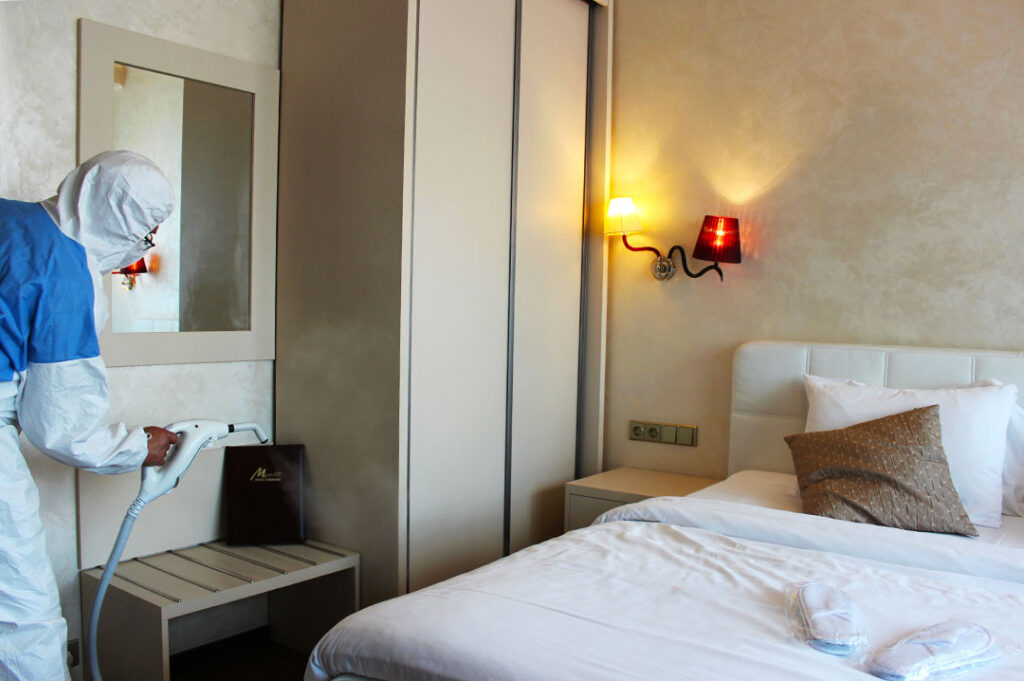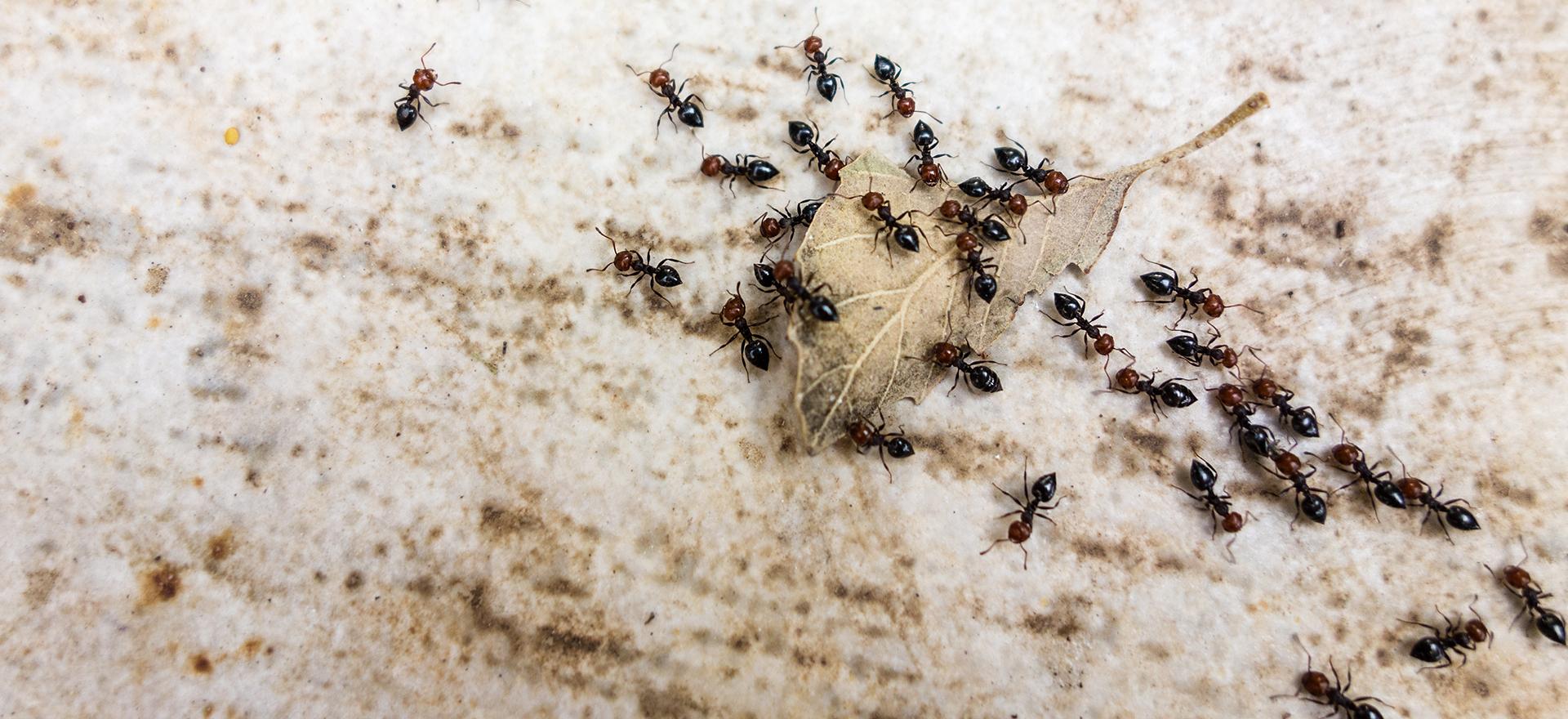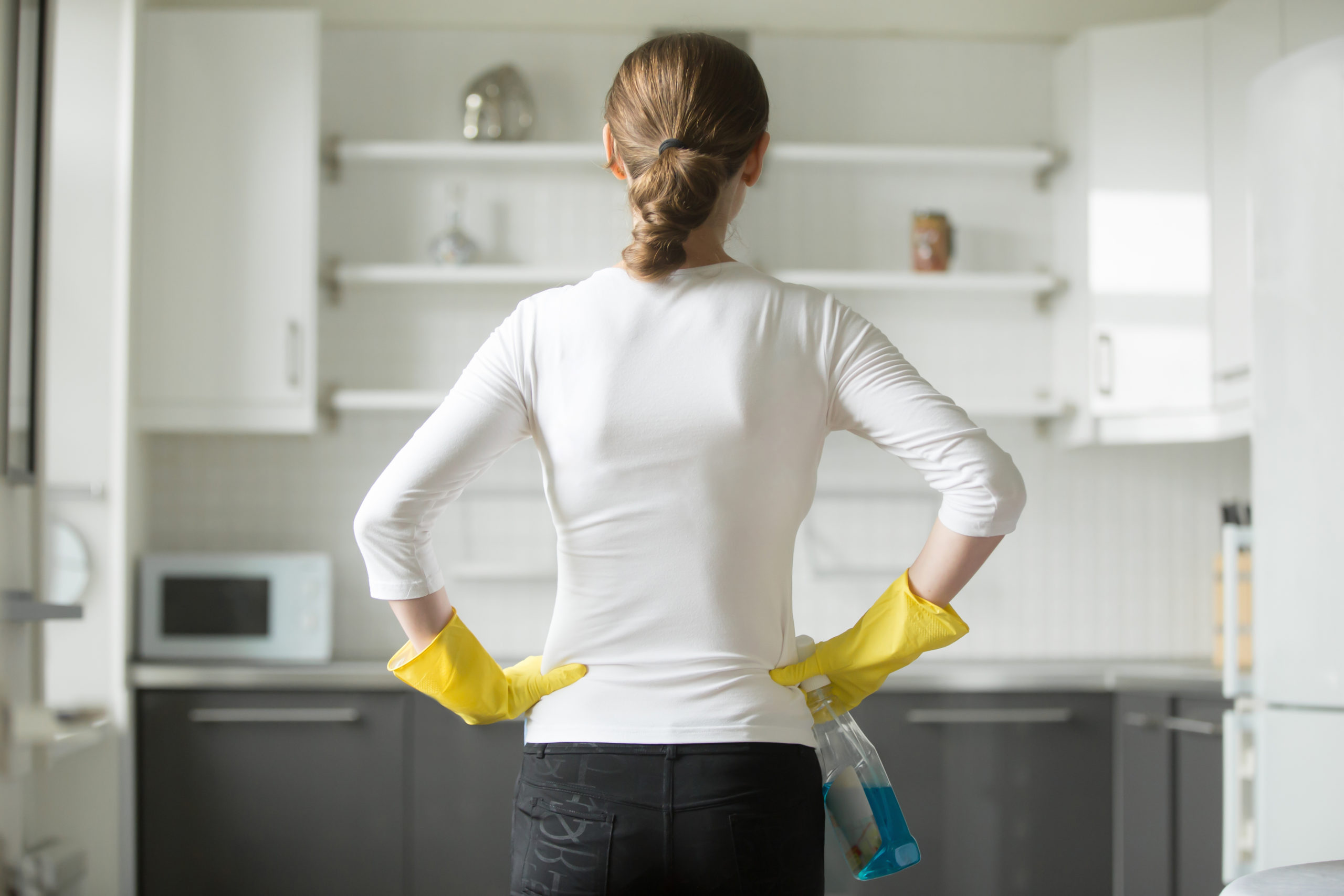In the hospitality industry, cleanliness is more than just a first impression—it’s a cornerstone of guest satisfaction and safety. Travelers expect hotels to provide not only comfort but also a hygienic and germ-free environment. Deep cleaning ensures that your hotel not only looks clean but is free from harmful bacteria, viruses, and allergens that can pose health risks.
In this article, we’ll explore the importance of deep cleaning for hotels and how it safeguards both your guests and your reputation.
1️⃣ What is Deep Cleaning in Hotels?
Deep cleaning goes beyond regular housekeeping duties like dusting and vacuuming. It involves intensive cleaning of hard-to-reach areas and disinfection of frequently touched surfaces such as:
➤ Light switches, door handles, and remote controls
➤ Bed frames, headboards, and mattresses
➤ Carpets, curtains, and upholstery
➤ Bathroom fixtures and tiles
Regular cleaning addresses visible dirt, but deep cleaning targets hidden bacteria and germs, ensuring your guests’ safety. This process is crucial, especially in high-traffic areas like lobbies, dining rooms, and guest rooms, where germs can accumulate quickly.
2️⃣ Why Deep Cleaning is Essential for Guest Safety
Hotels can be a hotspot for germs, especially during flu seasons or after a pandemic. Failing to maintain a rigorous cleaning routine can lead to illness outbreaks, negatively impacting your guests’ health and your business reputation. Here’s why deep cleaning is critical:
- Prevents the spread of infectious diseases: Germs can live on surfaces for hours or even days, so proper disinfection is crucial.
- Improves air quality: Dust, mold, and allergens can circulate through the air conditioning system, exacerbating allergies or respiratory problems.
- Creates a healthier environment: Cleaner rooms lead to happier guests, as they feel more comfortable and safe during their stay.
Maintaining a consistent cleaning schedule not only protects your guests but also reduces liability issues, as fewer health complaints arise from unsanitary conditions.

3️⃣ Key Areas that Require Deep Cleaning in Hotels
Hotels have unique needs compared to other businesses, making deep cleaning a challenge if not done thoroughly. Here are some of the critical areas that require extra attention during a deep cleaning session:
1️⃣ Guest rooms: While daily cleaning may involve changing linens and wiping surfaces, deep cleaning tackles mattress sanitization, carpet steaming, and upholstery cleaning.
2️⃣ Public areas: Lobbies, elevators, and staircases see heavy foot traffic and must be cleaned and disinfected regularly.
3️⃣ Bathrooms: Deep cleaning includes scrubbing tile grout, descaling showerheads, and disinfecting all surfaces to prevent the spread of bacteria and mold.
4️⃣ Kitchens: For hotels with dining options, deep cleaning of kitchen equipment, floors, and ventilation systems is essential to maintain hygiene standards.
5️⃣ HVAC systems: Regular cleaning of heating, ventilation, and air conditioning systems improves air quality and ensures the removal of dust and allergens.
4️⃣ Benefits of Hiring Professional Deep Cleaning Services for Hotels
Many hotels turn to professional cleaning services to ensure that every corner of the property is spotless. Here are the key benefits of outsourcing deep cleaning tasks:
➤ Expertise: Professional cleaners have the right tools and knowledge to tackle hard-to-reach areas and thoroughly sanitize surfaces.
➤ Advanced equipment: High-grade cleaning equipment like steamers, disinfectant sprayers, and ozone generators ensure deeper cleaning and better results.
➤ Efficiency: A professional service can complete the cleaning process faster, allowing your hotel to operate without disruption.
➤ Consistent quality: Regular deep cleaning ensures that cleanliness levels are maintained, reducing the risk of contamination and improving guest satisfaction.
Looking for a professional deep cleaning service for your hotel? Get a free quote here.
5️⃣ How Often Should Hotels Perform Deep Cleaning?
The frequency of deep cleaning depends on your hotel’s size, occupancy, and specific requirements. However, a monthly deep cleaning is recommended for guest rooms and high-traffic areas, while kitchens and bathrooms may require more frequent attention.
- Weekly deep cleaning for kitchens ensures compliance with food safety regulations.
- Monthly deep cleaning for HVAC systems keeps the air fresh and clean.
- Quarterly deep cleaning of carpets and upholstery removes accumulated dirt and allergens.
By maintaining a regular deep cleaning schedule, you can ensure a healthier and more hygienic environment for both your staff and guests.
Conclusion
Deep cleaning in hotels is no longer just an option—it’s a necessity. With the increased focus on hygiene and cleanliness, especially after global health crises, maintaining a safe and germ-free environment is critical for guest satisfaction and business success. By investing in regular deep cleaning, you’ll enhance your hotel’s reputation, protect your guests, and boost occupancy rates.
To ensure your hotel is properly cleaned, contact us for a free quote today.
Additional Resources:
- Learn more about hotel cleaning standards from the CDC.
- Discover more tips on hospitality cleanliness at HotelManagement.net.




